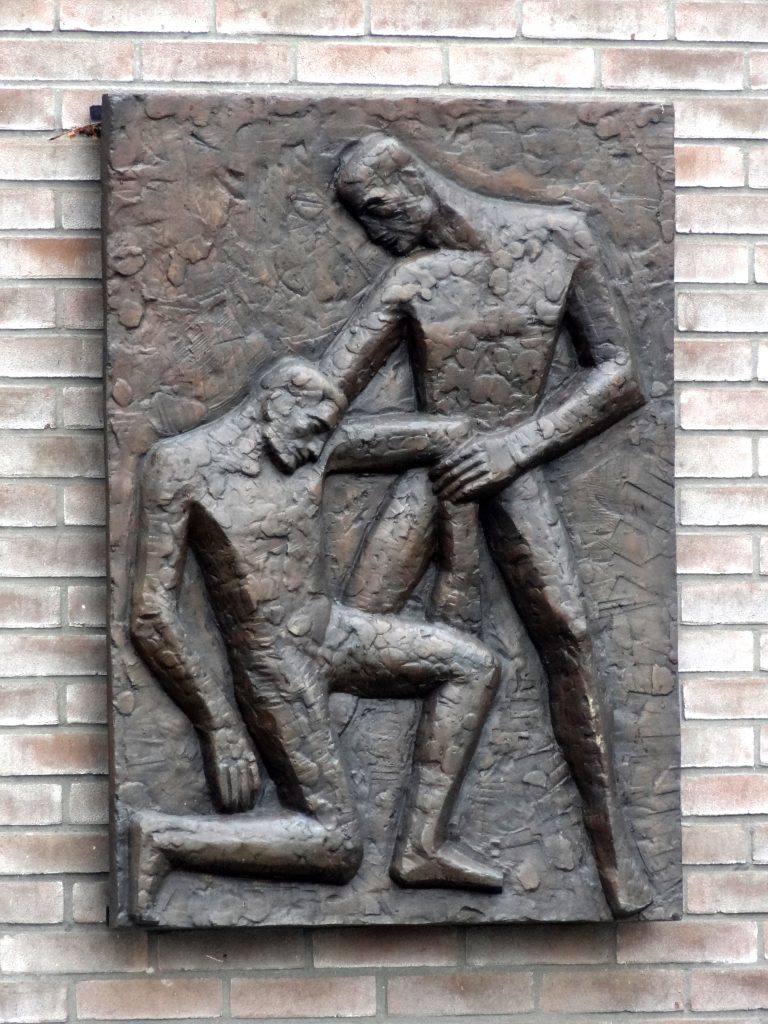Recently I had an appointment with a physical therapist. I had injured my shoulder in some mysterious way back in February. I gave it the usual 4-6 weeks to get better; and, when it was still nagging at me, went to the doctor. After doing an assessment, she agreed that physical therapy was the next step.
The earliest appointment was several weeks out; so, by the time I was actually seen it had been four months since the initial injury.
Now, throughout this time, I was able to do everything I wanted to. The pain was very minor, if annoying. I could still lift heavy things, knit for extended periods of time, and do all of my normal activities without having to take pain medication. So part of me wondered if I was wasting the physical therapist’s time.
During my appointment, the therapist assessed my relative arm strength and movement and told me what she discovered. Even though I hadn’t felt like there had been any impact in my strength and mobility. She, from her perspective, could see several physical signs of injury. I had both more limited mobility and more restricted range of motion in my injured arm than in my healthy arm.
I was honestly surprised.
The main reason I had followed up with the doctor and therapist about the injury was because I have had friends who have suffered permanent damage to joints because they didn’t get help early on after an injury. Either due to lack of insurance, or because their doctors didn’t take their complaint seriously at the time.
I was glad I had followed up. It was the type of injury that could lead to long term issues. By dealing with it promptly the therapist said she was very optimistic that the injury would heal if I kept up on the exercises she prescribed.
This got me thinking about how important help and support can be in life in general. Even though I could tell I was injured, it took consulting with professionals to help truly assess the scope of the injury. I couldn’t do it alone, even though I was the one feeling the pain.
Getting help early in the process may have saved me from needing much more extensive intervention later. Getting help before new, bad, habits had locked in place is allowing me to treat the problem with simple exercise. Getting help from an experienced practitioner allowed me to piggyback on their training and life experience and learn a lot in a very short time.
I think our culture can encourage ‘going it alone’ more than is healthy. Not only are there are many things that we can’t solve on our own, there are things we can’t even correctly diagnose on our own.
Help at the right time can prevent catastrophic.
Help from the right person can pin-point a problem.
Help of the right type can provide healing.
Requests for help are spread throughout the Book of Common Prayer. Sometimes we ask for direct help for ourselves, sometimes we ask for strength to help others. Help is shown as merciful and joyful. It can be a shield protecting us, or it can embolden us to fight for others.
True help is both powerful and empowering.
—————
Kristin Fontaine is an itinerant Episcopalian, crafter, hobbyist, and unstoppable organizer of everything. Advent is her favorite season, but she thinks about the meaning of life and her relationship to God year-round. It all spills out in the essays she writes. She and her husband own Dailey Data Group, a statistical consulting company.
© 2019 Kristin Fontaine

